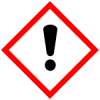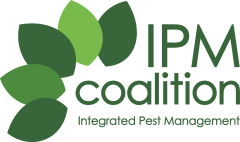Coalition status
FSC restricted HHPs
Chemical pesticide presenting one out of three of the following hazards: acute toxicity, chronic toxicity and environmental toxicity.
Details
Type: Pesticide
Use: Fungicide
Example applications: Ornamentals;Mushroom;Fruit and vegetables in storage
Example pests controlled: Canker;Wood-destroying and sapstain fungi
Mode of action: Sterol biosynthesis inhibitor
Source: PPDB
Toxicty
Mammal toxicity
Acute oral LD50 for most sensitive mammal species (LD50 < 200mg/kg bw).
Identifiers
GHS safety labels
- H302

Harmful if swallowed
Class: Acute Toxicity
Subclass: Oral
